WITNESS RADIO MILESTONES
Privacy Vs Free Expression: Global News Media Implications Of The EU’S General Data Protection Regulation (GDPR)
Published
7 years agoon
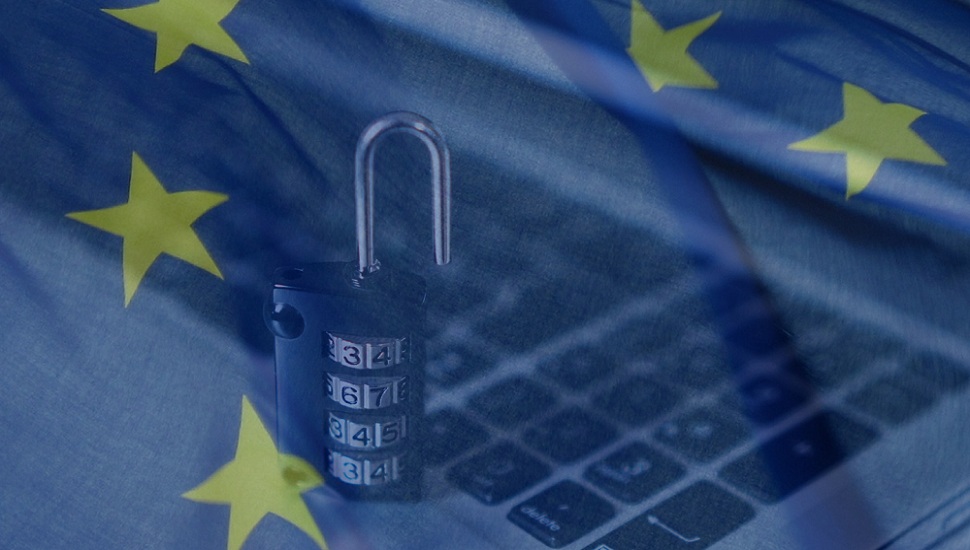
By Ayden Férdeline
Personal data privacy, or the general lack thereof online, has garnered a considerable amount of attention in the past month, especially in the wake of the Facebook-Cambridge Analytica controversy. The European Union’s new General Data Protection Regulation (GDPR), which will take effect on May 25 after having been a decade in the making, will fundamentally change how personal data can be collected and processed. Some have even held up this new European privacy regulation as a potential remedyfor corporate neglect of individual privacy. Without a doubt, the impact of this extraordinary revision to European privacy law will be felt by journalists and publishers both inside and outside of Europe as they negotiate news standards that affect how they handle personal information.
The GDPR is playing a decisive role in the ongoing harmonization of global privacy standards by the large tech platforms. This is because the Council of the European Union has advised the European Commission that it cannot negotiate away privacy rights in trade agreements, and so a need to comply with the GDPR in order to do business in Europe will likely incentivize businesses to adopt higher privacy and data protection standards for their entire operations worldwide.
The reach of the GDPR is broad. It applies to all sectors which collect or process the data of people ordinarily resident in the European Union, including the news media. Unusually, its scope is extraterritorial, meaning that it applies irrespective of whether the “data controller” is based in a European Union member state or another country altogether. The data controller is the entity legally responsible and subject to enforcement action. For staff reporters, for example, the data controller would be the media outlet employing them. However, freelance journalists or citizen journalists would be seen as either sole or joint data controllers. The distinction between sole or joint controller is not too important, because in either case, the freelancer would personally absorb the liability for complying with the GDPR.
In order to understand why this is the case, it is helpful to explore the key principles contained within the GDPR. The GDPR applies whenever a journalist (or other entity) collects or publishes information about a living person. The GDPR holds that data subjects are entitled to control over their personal data, that data controllers must be held accountable for their actions, and it says that privacy must be the default setting.
These principles will not, for the most part, present a burden to journalists. If you are honest and transparent with a source and they are aware they are being interviewed on-the-record and disclosing information for publication, you will have met the criteria for consent.
Reassuringly, however, there are some exemptions within the GDPR for the production and publication of legitimate journalistic work where obtaining consent would not be practical. However, this exemption is only for journalists and not for media outlets in general, so the ”business side” of a publication must always comply with the GDPR. One lawful condition for the collection and publication of personal data without consent is where the legitimate interests of another party override those of the individual. What this means is vague, but essentially it is saying, the burden is on a journalist to determine that the public interest in collecting and processing personal data outweighs the rights of the individual to privacy.
How such a balancing test should be performed in practice is up to the media outlet, but in keeping with the GDPR’s principles, it would seem there should be consideration as to the potential harm that publication could cause to the data subject. Journalists should also consider whether or not the story could be reported in a less intrusive manner.
It is not enough to merely comply with the GDPR. Data controllers must be able to verifiably demonstrate their compliance with the regulation. The supervisory authorities tasked with enforcing the GDPR have the right to obtain a data controller’s internal operating procedures for processing and safeguarding personal data. Given this, it would be advisable for publications to have clear, documented policies as to editorial flows and who should sign off on what kinds of stories prior to publication. This audit trail is very important, especially for stories which could be seen as very intrusive and which do not concern public figures. Another good practice would be to ensure journalists undergo basic data protection awareness training, so that publications can demonstrate to supervisory authorities that their personnel can distinguish between personal, sensitive, and non-personal data.
The GDPR requires that personal and sensitive information be kept secure. Journalists must take reasonable steps to prevent their notes and research materials from being lost or stolen. You should be careful when out in public as to whether prying eyes could read your laptop screen or steal data over the Wi-Fi network. A good practice would be to encrypt information and to set up your devices so that they can be remotely wiped, if lost or stolen.
There is a perception that the GDPR is a heavy-handed regulation that is difficult to comply with, and while this is true for some industries and business functions, it should not cause consternation for journalists. Many provisions within the GDPR that have generated headlines are misunderstood and instead constitute best practices in information security. Lawmakers have carved out many safeguards for the exercise of freedom of expression, including within the right to erasure (also known as the ‘right to be forgotten’). This right is not absolute and only applies in certain circumstances. Another provision, that data “must be accurate,” merely indicates that if an individual disputes the accuracy of information concerning them within a story, the data controller should verify their records and, if necessary, affix a correction to the online archives.
The tussle between the right to privacy and the right to freedom of expression is not new, and not easily resolved, because both are equally fundamental, but the GDPR tries to strike an appropriate balance between the two. The GDPR’s fundamental principles of accuracy, security, fairness, and respect for the rights of the individual whose data is being processed are about building trust. In an age where trust in our institutions, and in the media, is on the decline, the GDPR should be seen as an opportunity to institutionalize respect for getting things right – developing practices for handling information securely, keeping the identities of sources safe and confidential, and upholding your reputation. There will be challenges ahead, but there is real value to be derived from the GDPR too.
Extracted from CIMA
…
Related posts:
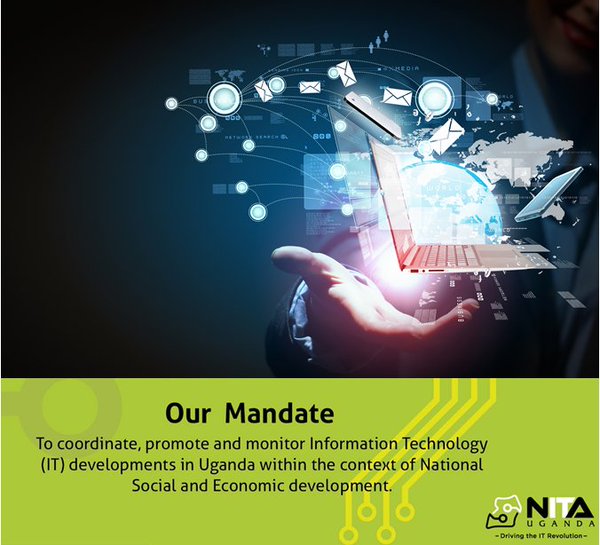
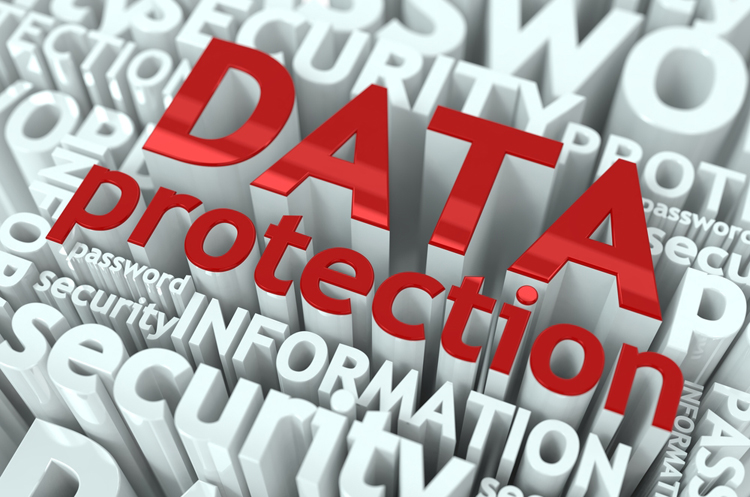 Internet activists urge Parliament to pass Private and Data Protection Bill
Internet activists urge Parliament to pass Private and Data Protection Bill
 Ruling party leaders want social media platforms indefinitely closed.
Ruling party leaders want social media platforms indefinitely closed.
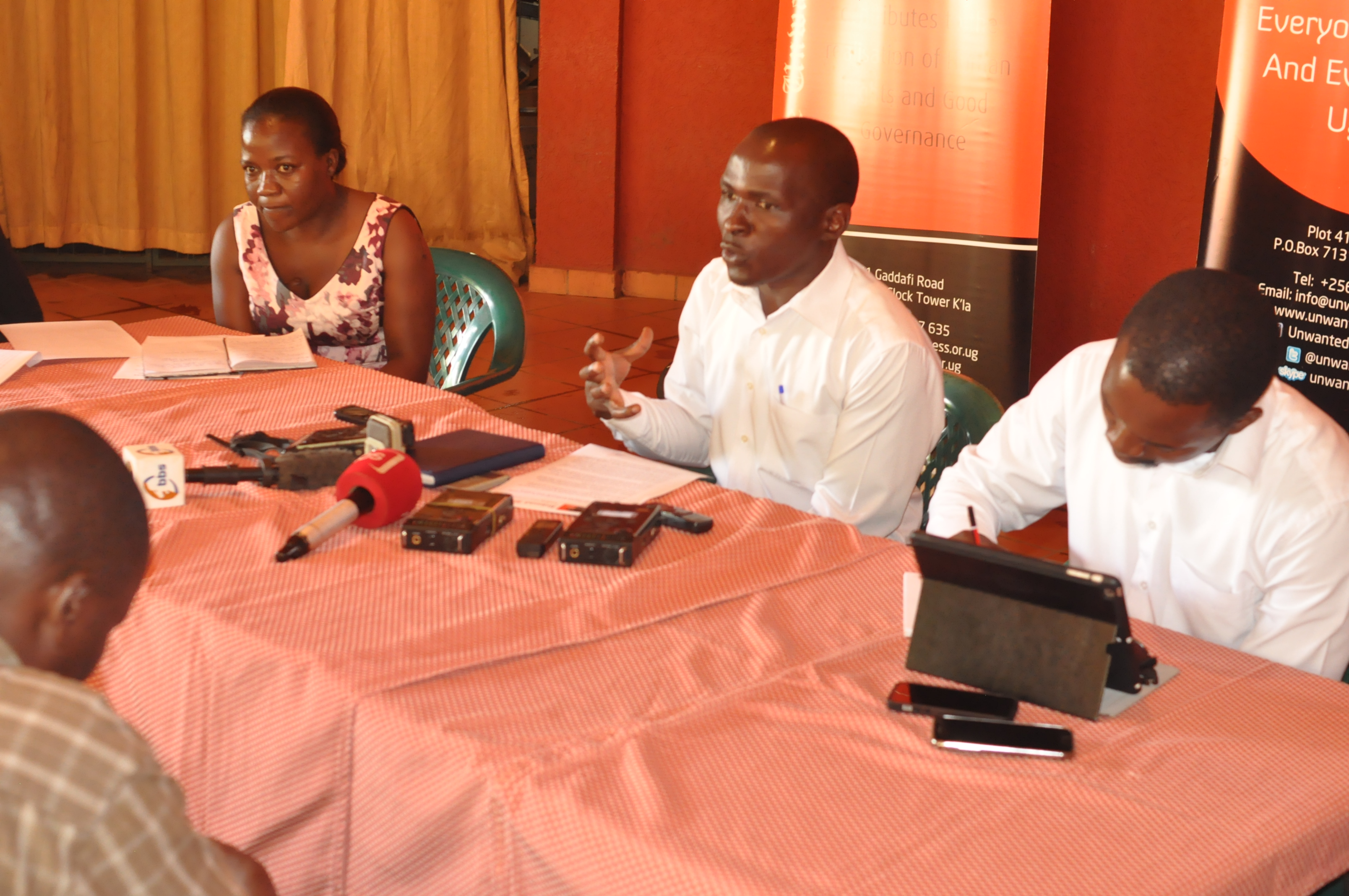 Unwanted Witness raises red flag on government move to surrender ID data to private telecoms
Unwanted Witness raises red flag on government move to surrender ID data to private telecoms
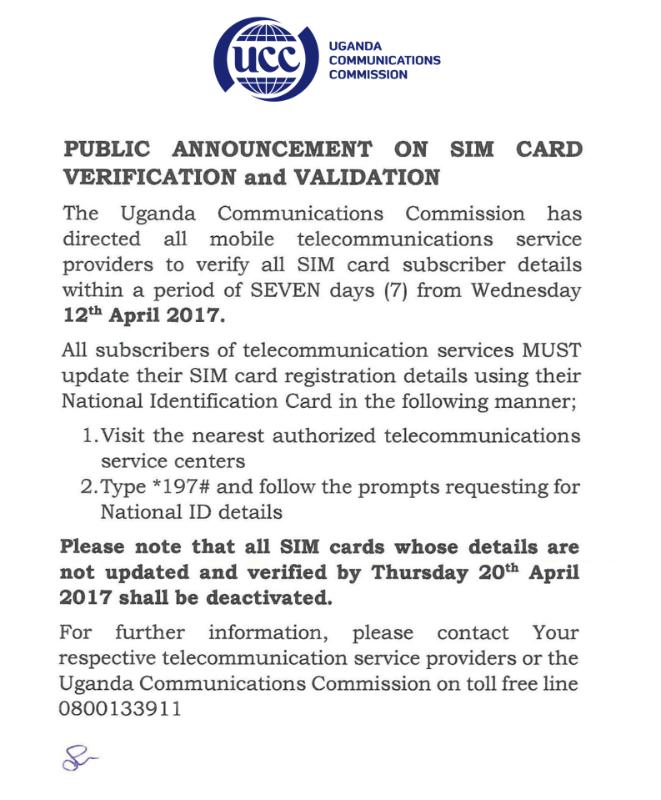 Skepticism As Government Implements Its Decision To Allow Telecoms Access To ID Data
Skepticism As Government Implements Its Decision To Allow Telecoms Access To ID Data
You may like
-


Why Are Evictions Still Happening In Kiryandongo: Witness Radio Petitions Government.
-
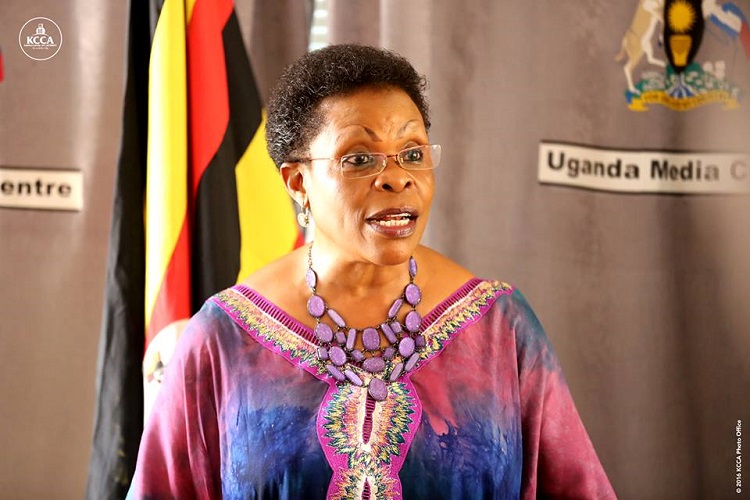

Government issues notice on land evictions amid COVID-19 lockdown
-


28 land rights defenders charged with 9 counts, trial slated for this November
-


Criminal trial date for 28 land rights defenders is set
-


Food sovereignty is Africa’s only solution to climate chaos
-
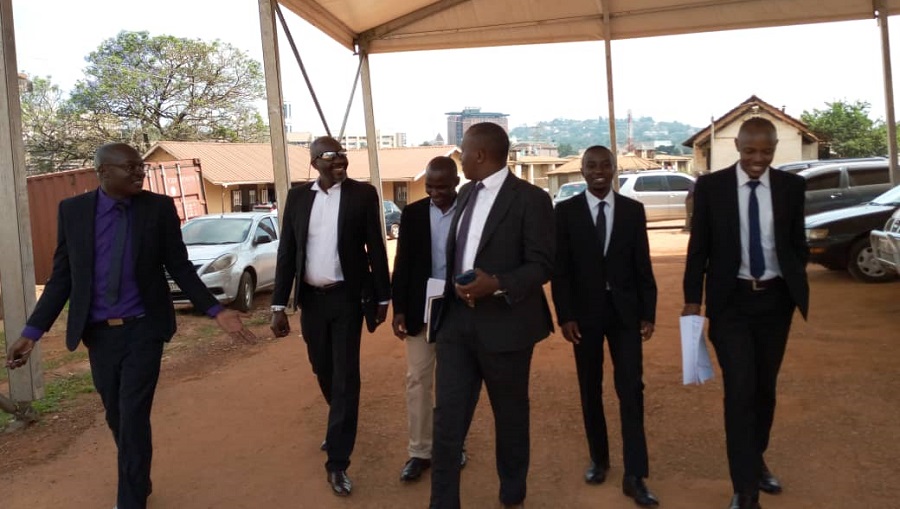

Land grabbing: Police shields complainant in the libel case against human rights attorney Kiiza Eron.
WITNESS RADIO MILESTONES
Top 10 agribusiness giants: corporate concentration in food & farming in 2025
Published
3 weeks agoon
June 19, 2025
Today a handful of agribusiness corporations have consolidated unprecedented control over the world’s food supply, with devastating consequences for farmers, consumers and the planet. A new report by ETC Group and GRAIN examines the state of corporate concentration in six sectors critical to agriculture: commercial seeds, pesticides, synthetic fertilisers, farm machinery, animal pharmaceuticals and livestock genetics.
Corporate consolidation is increasing in most of these sectors and four of them– seeds, pesticides, agricultural machinery and animal pharmaceuticals– now meet the definition of an oligopoly, in which four companies control more than 40% of a market. Concentration can be even higher at the national level, as is the case with synthetic fertilisers.
Top findings from the report include:
- Oligopolies dominate key sectors: Bayer, Corteva, Syngenta, and BASF control 56% of the global commercial seeds market, and 61% of the pesticides market.
- Profiteering amid global crises: Agribusiness giants have exploited crises like the Ukraine war and the COVID-19 pandemic to inflate prices. Fertiliser companies, for instance, saw revenues soar by 57% from 2020 to 2023, with some accused of price gouging.
- Digital and biotech expansion: Corporations are rapidly integrating AI, gene editing, and digital platforms into agriculture through partnerships with Big Tech companies. These technologies enable data extraction from farmers, facilitate carbon credit schemes, and tighter control over food systems—while raising concerns about biosafety, privacy, and corporate monopolies.
Source: grassrootsonline
Related posts:

 A corporate cartel fertilises food inflation
A corporate cartel fertilises food inflation
 Food inflation: The math doesn’t add up without factoring in corporate power
Food inflation: The math doesn’t add up without factoring in corporate power
 African governments are giving in to corporate pressure and undermining local seed systems – report
African governments are giving in to corporate pressure and undermining local seed systems – report
 The United Nations Food Systems Summit is a corporate food summit —not a “people’s” food summit
The United Nations Food Systems Summit is a corporate food summit —not a “people’s” food summit
WITNESS RADIO MILESTONES
Land grabbers evict 360,000 Ugandans in 2024
Published
8 months agoon
November 20, 2024
A staggering 363,021 Ugandans were displaced due to forced land evictions between January and June 2024, according to a new report by Witness Radio Uganda.
The report documented 90 cases of land evictions during this period, with nearly four incidents occurring weekly, affecting over 15,126 people and threatening 5,060 hectares of land nationwide.
The Central region was the epicenter, recording 52 eviction cases, followed by 24 in the Western region, eight in the Northern region, and six in the Eastern region. Alarmingly, the report estimated that 2,160 Ugandans face eviction daily, with 723 hectares of land at risk of being grabbed every day.
VIOLENCE AND HUMAN RIGHTS VIOLATIONS
Despite government promises and directives from President Museveni to halt evictions, land grabbers have routinely ignored these orders, often resorting to violence. Armed security forces, private militias, and police were reported to have carried out the majority of the evictions.
Of the reported cases, 37 were enforced by armed gangs on behalf of evictors, 25 involved Uganda Police, five were carried out with the participation of UPDF soldiers, and four were linked to private security companies.
“The egregious levels of impunity exhibited by land grabbers have left communities defenseless, creating an environment where their human rights are trampled without consequence,” said Jeff Wokulira Ssebaggala, country director of Witness Radio Uganda.
He called for accountability and justice, warning that the unchecked power of influential individuals and entities leaves marginalized communities vulnerable and without recourse.
DRIVERS OF EVICTIONS: INDUSTRIALIZATION AND LAND-BASED INVESTMENTS
The report identified the government’s push for industrialization and land-based investments as the primary drivers of forced evictions. Land is increasingly targeted for oil and gas extraction, mining, agribusiness and tree plantations for carbon offsets. While some of this land is already under development, other parcels remain vacant but are guarded by military personnel and private security firms.
Ssebaggala emphasized that industrialization must balance economic development with the protection of smallholder farmers’ rights to land and food security.

TRAGIC STORIES
The report highlighted harrowing cases that underscore the human toll of forced evictions. In Nakasongola, smallholder farmer Dan Ssebyala was ambushed and killed by armed men following a confrontation over disputed land. The district has become a hotspot for violent evictions involving absentee landlords and powerful investors.
Ismael Bwowe, a disabled father of 20, recounted how his land was confiscated after he demanded fair compensation. He faced intimidation, arrests and false charges from state authorities, including being accused of robbing an influential individual. Bwowe claimed that Total Energies offered legal support and representation on the condition that he accept their compensation terms.
“I refused,” he said, adding that the pressure to relinquish his land remains intense. The report underscores the urgent need for reforms to address forced evictions, ensure accountability, and protect the rights of vulnerable communities. Without meaningful intervention, Uganda risks deepening inequality and undermining the livelihoods of smallholder farmers who are essential to the country’s food security.
FAMILY JAILED AMID LAND DISPUTE
The plight of Richard Ssebagala, his wife Prossy Namande, and their relative Anania Ngabirano, residents of Kabubu-Kabongo village in Nansana Municipality, Wakiso district, highlights the human toll of Uganda’s ongoing land disputes. The family spent nine months in prison following their arrest on January 10, 2024, under controversial circumstances.
ARREST AND ALLEGATIONS
The arrests occurred at 1am, during a raid by officers from Luweero police station. Police reportedly banged on the doors and forcefully detained the family, accusing them of aggravated robbery. However, the family believes the arrest was a tactic linked to a land dispute with Benon Ntambi, a man who allegedly grabbed their land.
Before the arrests, Ntambi had reportedly destroyed crops, including tomatoes, potatoes, and bananas, on the contested land. While the family was incarcerated, a new building was constructed on their land, which is now occupied, raising further questions about the motivations behind their detention.
CALLS FOR JUSTICE
The case has drawn attention from Witness Radio Uganda, which has urged the government to take immediate action to address land grabbing and illegal evictions. The organization emphasized the need to strengthen land laws and protect vulnerable communities from abuses.
It also called for greater accountability in institutions such as the Uganda Police Force, the army and land registries, which are often accused of corruption and favoritism toward the wealthy.
“The government must prioritize justice for victims of illegal evictions and address systemic corruption that leaves the poor defenseless against land grabbers,” Witness Radio Uganda stated.
BROADER CONTEXT
This case underscores the broader issue of land conflicts in Uganda, where vulnerable families are often caught in disputes with powerful individuals or entities. Advocacy groups warn that the failure to address these issues not only erodes public trust but also perpetuates inequality and injustice.
As the government faces mounting pressure to act, the story of Ssebagala and his family serves as a stark reminder of the urgent need for reforms to protect land rights and ensure justice for those impacted by land disputes.
Source: The Observer
Related posts:

 Local land grabbers evict villagers at night; foreign investors cultivate the same lands the next day
Local land grabbers evict villagers at night; foreign investors cultivate the same lands the next day
 Uganda: Land-grab victim communities will join counterparts in commemorating the 2024 International Day of Struggle Against Industrial Plantations.
Uganda: Land-grab victim communities will join counterparts in commemorating the 2024 International Day of Struggle Against Industrial Plantations.
 Mubende Land Grab: Witnessradio.org presents another petition to Land Inquiry Commission, Wants All Titles being used to evict Natives to be Investigated
Mubende Land Grab: Witnessradio.org presents another petition to Land Inquiry Commission, Wants All Titles being used to evict Natives to be Investigated
 A Nullity? Ugandans Query Constitutional Land Amendment Bill
A Nullity? Ugandans Query Constitutional Land Amendment Bill
WITNESS RADIO MILESTONES
Uganda: Community members violently evicted by security forces, allegedly related to EACOP; incl. co. responses
Published
8 months agoon
November 18, 2024
On 10 February 2023, more than 2,500 community members were forcibly evicted from their land in Kapapi village in Hoima district in Western Uganda by security forces, receiving no compensation or resettlement.
Witness Radio, an Ugandan non-profit organisation comprised of human rights investigative journalists, lawyers, and social workers, said that many people were wounded during the eviction, women were raped, and houses were destroyed.
Witness Radio said its investigations found that this eviction occurred to clear the path for the Tilenga feeder pipeline, part of the East African Crude Oil Pipeline (EACOP). According to Witness Radio, in 2022 Kapapi community members’ land was surveyed for the Tilenga pipeline and people were informed they would be compensated for the land. Instead, they were forcibly evicted, which Witness Radio allege was backed and financed by Swacoff Intertrade Company Limited, known to TotalEnergies. They also allege that guards from private security company Magnum Security were involved. Witness Radio has also found that dozens of local farmers who were evicted have been arbitrarily arrested and face criminal charges.
The Business & Human Rights Resource Centre invited TotalEnergies, Swacoff Intertrade Company Limited, and Magnum Security to respond to the allegations. TotalEnergies responded and stated that no land eviction activities had been carried out by or on behalf of TotalEnergies EP Uganda (TEPU) and EACOP Ltd and that none of the affected people are Tilenga or EACOP Project Affected Persons. Swacoff responded and said that the company has never engaged in forceful eviction of any sort and asserts that these allegations are completely false. Their full responses and rejoinders from Witness Radio are available below. Magnum Security did not respond.
Related posts:

 Uganda: NGO claims Agilis Partners & Great Seasons violently evicted locals to pave the way for agribusiness; Agilis Partners responds
Uganda: NGO claims Agilis Partners & Great Seasons violently evicted locals to pave the way for agribusiness; Agilis Partners responds
 A son of the community defender is shot dead, another critically injured in a retaliatory attack by security guards evicting locals off their land to give way to large-scale sugarcane growing.
A son of the community defender is shot dead, another critically injured in a retaliatory attack by security guards evicting locals off their land to give way to large-scale sugarcane growing.
 Breaking: Criminal trial for seven community defenders opposed to EACOP/Tilenga project forced land eviction has been fixed.
Breaking: Criminal trial for seven community defenders opposed to EACOP/Tilenga project forced land eviction has been fixed.
 Uganda: CSOs claim Agilis Partners forcibly evicting local communities to pave way for agribusiness; company did not respond
Uganda: CSOs claim Agilis Partners forcibly evicting local communities to pave way for agribusiness; company did not respond

Communities Under Siege: New Report Reveals World Bank Failures in Safeguard Compliance and Human Rights Oversight in Tanzania

A decade of displacement: How Uganda’s Oil refinery victims are dying before realizing justice as EACOP secures financial backing to further significant environmental harm.

Carbon Markets Are Not the Solution: The Failed Relaunch of Emission Trading and the Clean Development Mechanism

Govt launches Central Account for Busuulu to protect tenants from evictions

A decade of displacement: How Uganda’s Oil refinery victims are dying before realizing justice as EACOP secures financial backing to further significant environmental harm.

Govt launches Central Account for Busuulu to protect tenants from evictions

Despite harsh repression, opposition to the EACOP pipeline in Uganda remains strong

Top 10 agribusiness giants: corporate concentration in food & farming in 2025

Innovative Finance from Canada projects positive impact on local communities.
Over 5000 Indigenous Communities evicted in Kiryandongo District
Petition To Land Inquiry Commission Over Human Rights In Kiryandongo District
Invisible victims of Uganda Land Grabs
Resource Center
- LAND GRABS AT GUNPOINT REPORT IN KIRYANDONGO DISTRICT
- RESEARCH BRIEF -TOURISM POTENTIAL OF GREATER MASAKA -MARCH 2025
- The Mouila Declaration of the Informal Alliance against the Expansion of Industrial Monocultures
- FORCED LAND EVICTIONS IN UGANDA TRENDS RIGHTS OF DEFENDERS IMPACT AND CALL FOR ACTION
- 12 KEY DEMANDS FROM CSOS TO WORLD LEADERS AT THE OPENING OF COP16 IN SAUDI ARABIA
- PRESENDIANTIAL DIRECTIVE BANNING ALL LAND EVICTIONS IN UGANDA
- FROM LAND GRABBERS TO CARBON COWBOYS A NEW SCRAMBLE FOR COMMUNITY LANDS TAKES OFF
- African Faith Leaders Demand Reparations From The Gates Foundation.

